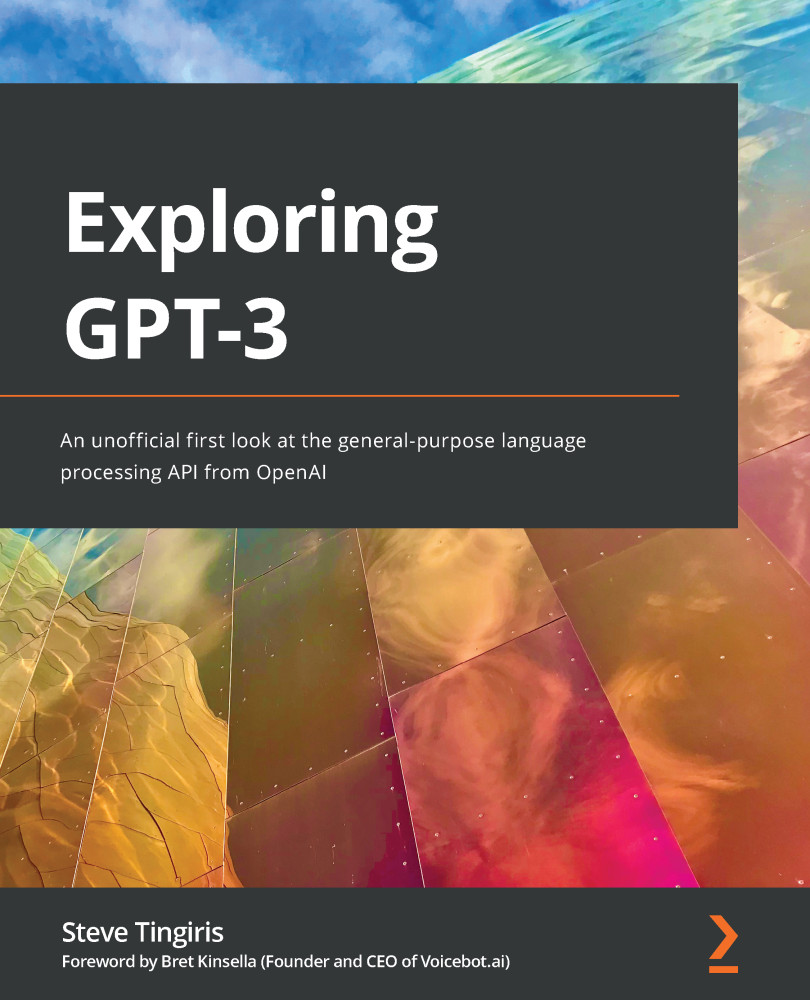-
Book Overview & Buying

-
Table Of Contents

Exploring GPT-3
By :

Exploring GPT-3
By:
Overview of this book
 Free Chapter
Free Chapter
 Sign In
Start Free Trial
Sign In
Start Free Trial

 Free Chapter
Free Chapter
Python is another popular programming language, and it is especially popular among the machine learning community. It's a robust language but it's also very beginner-friendly. If you are coding for the first time, Python will probably be one of the easier languages to get started with. Like with JavaScript/Node, Python is open source and can be used on Linux, macOS, or Windows. It is also included with many operating systems, including macOS and most Linux distributions. But since we'll be working in replit, we don't need to worry about Python being installed on our local machine. That said, nothing in the code we'll be writing depends on anything that is specific to replit. So, everything we'll be doing could be done on any computer that is properly configured for doing Python development.
For our first example, we'll look at using Python to call the OpenAI Engines endpoint.
Calling the engines endpoint
We...

Change the font size
Change margin width
Change background colour